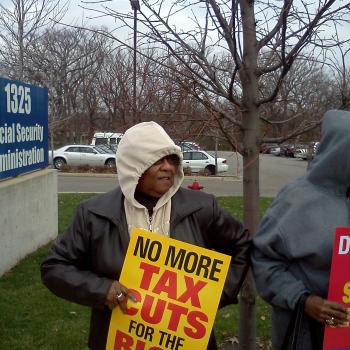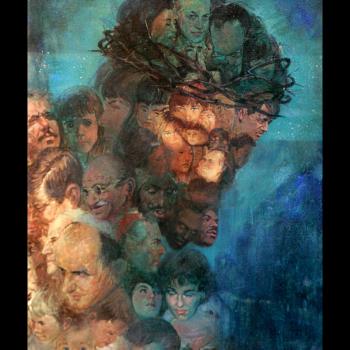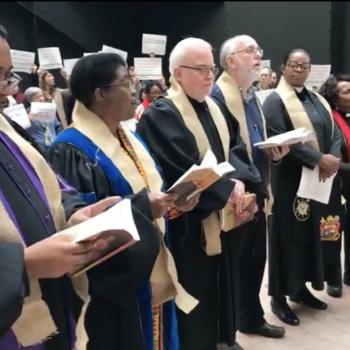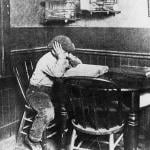It was 50 years ago that the Supreme Court handed down the decision in the Loving case outlawing bans on interracial marriage. The case was brought by Mildred and Richard Loving, a black woman and white man. They were married in 1958 in Washington DC then returned to live in Virginia. They were arrested and each sentenced to a year in prison for violating Section 20-58 of the Virginia Code. The judge offered to suspend their sentence if they agreed to plead guilty, leave Virginia, and never return. The Loving’s were an ordinary couple who fell in love 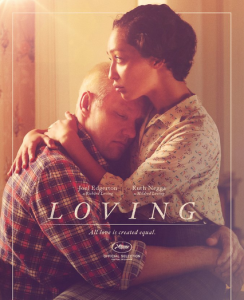 and wanted to live a quiet life together near their families in Virginia. They were not activists trying to make a statement. Because of their willingness to stand up for what is right and just, they both spent time in jail. However, there is more to this case then just one couple’s life. The case challenged Virginia’s Racial Integrity Act of 1924, which prohibited interracial marriage. The Supreme Court rendered a unanimous decision overturning the laws prohibiting interracial marriage.
and wanted to live a quiet life together near their families in Virginia. They were not activists trying to make a statement. Because of their willingness to stand up for what is right and just, they both spent time in jail. However, there is more to this case then just one couple’s life. The case challenged Virginia’s Racial Integrity Act of 1924, which prohibited interracial marriage. The Supreme Court rendered a unanimous decision overturning the laws prohibiting interracial marriage.
I was thinking about the Loving’s story recently. My daughter, Briana came home to Connecticut this week both for the funeral of her grandmother and to begin plans for her wedding. Briana and her fiancé Doug live in South Carolina. Briana is black and Doug is white. They met in high school, started dating a few years later, fell in love, and decided to get married. At the beginning of this year they moved to South Carolina for work. In 1991, the year that Briana was born, it was still illegal for an interracial couple to get married in South Carolina. In fact it wasn’t till 2000 that the last state, Alabama, repealed its laws prohibiting mixed race couples from marrying. This was not in the 1800’s or even in the 40’s and 50’s. Just 17 years ago a white man could not legally marry a black woman in Alabama. It was only 19 years ago that my daughter could not marry the love of her life in South Carolina.
We often hear claims from our leaders that racism does not exist. How could racism exist when a black man was elected president? We think, “Sure there still are a few folks who are racist but for the most part as a nation we have gotten over racism.” I used to think I understood racism. I grew up in a poor, racially mixed neighborhood. I had friends who were black, white and Latino. It didn’t really matter to me what color or race they were. When I was older and became an activist I would be on the front lines for racial justice. I thought that I got racism. I understood what it means and how it affected folks. My parents immigrated to America from Ireland in 1950. My mother was a Catholic from Belfast. They came both for economic reasons and to escape the hatred and prejudice she experienced as a Catholic growing up in Belfast. She taught me to stand with those who were treated unjustly.
Over the years I did stand up, I marched, I organized, I got arrested and did whatever else I thought would help bring about systemic change. But it wasn’t until my wife and I became foster parents and then adopted my son and daughter who are African-American that I truly understood racism. I remember when Briana was a freshman in high school. I got called into a meeting with the guidance counselor and the assistant principal. It seems that Briana was walking down the hall and a few white kids would taunt her by saying, “There goes the big gorilla” and similar insults. Briana finally had enough and lashed out, punching one of the kids. In the meeting, the counselor said that while he understood Briana getting angry at the boys for taunting her, violence was not acceptable. I agreed that violence is never appropriate. I then asked what he was going to do about the boys. He said he would talk to them about bullying. I was a little taken back by his response. I asked again what about talking to them about racism. I was floored by their reaction. The vice principal said, “What does this have to do with racism?” These two men were well respected, considered good educators and leaders who really cared about the students. In a hundred years they would not consider themselves as racist, yet they did not understand that calling a black girl ‘a big gorilla’ was racist. Another memory I have is when my son and a few of his friends, who are white, were talking. One of them said, “You know Mr. C, we can be fooling around in school and every time Delvon is the one who gets singled out.” The teacher was a good teacher who would never think of herself as racist. But her subconscious attitude was racist. I see it over and over with my son who gets pulled over for DWB. It really hit home for me when a friend from my church, a black man, asked me if I had the “talk” with my son yet. My first thought was, ‘He must mean the sex talk.’ He went on to explain to me what the “talk” was. The fact that parents of black children feel it necessary to have the “talk” with their children and most parents of white children don’t even know what the talk is, shows how ingrained racism is in our society.
As a Catholic, when I go to Confession I still say the prayer I was taught as an eight year old boy. Bless me father for I have sinned. It has been —– since my last Confession and these are my sins. I then go on to name my sins. We cannot heal and move forward unless and until we name the sins. As a nation we live in denial that racism exists. It exists in every fragment of our society, our churches, schools, businesses and even our own hearts. We look at folks as ‘other’ not as brother. If we cannot see God in ourselves how can we possibly see God in others? As a nation we will never begin the healing process until we are willing to name the sin of racism.
We think and say we have come a long way and we have. But in a 2011 survey almost 50% of Republicans in Mississippi said they believe that interracial marriage should be illegal. Similar results have been shown in Alabama and other states. My wife and I recently sat with Briana and Doug as they excitedly talked about their wedding plans. I am very excited for her but I worry that we live in a country where a large number of folks don’t think they should legally be allowed to be married. I worry more that the rest of us sit silently by. One of the really wonderful things about the original Loving Supreme Court decision was that it was a unanimous decision. I sincerely doubt that if the case were heard today it would be a unanimous decision and that in itself speaks volumes as to where we are as a nation.
Peace and All Good



